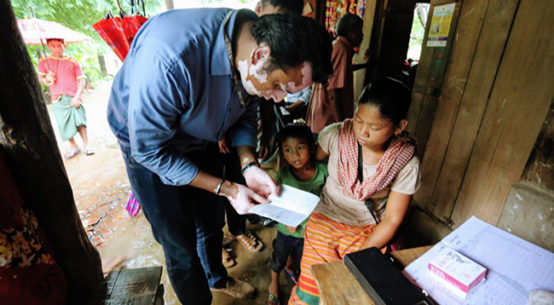Just as Pori Moni and the club crowd were lighting up Dhaka with their accusations and counter-accusations, the story of a DU graduate girl Razia who has started a compost heap business in her rural home in Bogura town has gladdened many hearts. The grit and self-respect that she has displayed brought hope to many hearts that a Bangladesh that is made up of ordinary people doing extraordinary things is still alive and well in Bangladesh. The tales of sleaze, addiction, sexual crime and an overwhelming sense of decadence that pervades Dhaka has been slightly balanced by her tale. It seems hope exists and so do people who are ready to work for its future. But they may not be part of our world where club culture dominates.
Where does Bangladesh live?
It’s common to hear frustrated voices asking if this was the Bangladesh people fought for in 1971. The reasons are not hard to find. They look at Dhaka and its socio-cultural filth, its criminally corrupt money making and spending activities, the flouting of any semblance of a legal life makes many feel outraged. They feel they have no rights and are forced to endure hardships while many others particularly the club class lead an indulgent life. As a result society is considerably ramshackle and split.
Nobody is in immediate danger but that a threat to all that is building up is obvious. Lack of confidence is one thing but if people think that socio-economic discrimination between the privileged and the rest is so high, just about everyone should be concerned including the club class.
It’s at this point that the media story of Razia who went back to the villages during the time of corona and didn’t return to the city looking for a job has caught much attention. This girl’s story is what makes people rethink Bangladesh as a reality that probably lives more frequently outside Dhaka than the capital city.
Coming from a farmer’s family, she grew up helping her father in harvesting. To her it was a need and not degradation. Her older sister was a big help too and together they have started a business of producing compost fertilizer and started marketing the produce. The business is small but the courage and hope she has displayed along with hard work is big. It has come at a time when the doubt about the kind of Bangladesh that has emerged was filling many with shame, dread and anger.
It seems there are many such stories and Bangladesh has many like her. Our media had focused a lot on the sleaze but perhaps the story came up at the time to remind us that the media can play a positive role and show why there is hope. It’s in the areas beyond Dhaka that people are building a brave new world.
Thanks Prothom Alo for doing the story and thanks Razia for being the youth on whom we pin our hopes.

